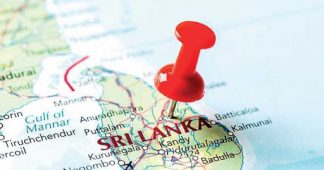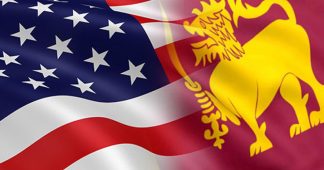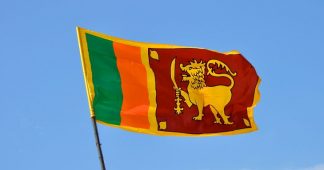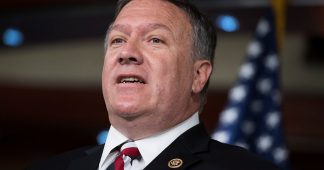By Lasanda Kurukulasuriya
Apr.3, 2021
Maldivian parliamentarians have been up in arms since the government’s signing of a defence agreement with India in February which, according to a leaked draft, permits Indian military presence. It is reported that the majority (48 out of 51) of those demanding that the agreement be disclosed and debated in parliament, were ruling party MPs of the Maldivian Democratic Party. The deal with India comes on the heels of a defence agreement Maldives signed with the US in September.
Recent security-related developments in the Maldives are of relevance to Sri Lanka for multiple reasons. There are similarities in approach adopted by the US to gain a foothold in the two strategically located Indian Ocean states – through defence agreements like ACSA (Acquisition and Cross Servicing Agreement) and SOFA (Status of Forces Agreement). In 2013 Maldives told the US it would not sign a proposed SOFA. Its terms were almost identical to the SOFA discussed with Sri Lanka in 2019. Then foreign minister Tilak Marapane told the US that Sri Lanka could not sign owing to provisions that couldn’t be implemented, such as granting diplomatic immunity to US Department of Defense personnel, and exempting them from criminal jurisdiction under Sri Lankan law while in Sri Lanka.
While India takes a big-brotherly interest in both the Maldives and Sri Lanka, it is locked with the US in an ever-closer strategic partnership, that has the shared goal of pushing back against China’s rising influence in the region.
Indian military presence
The Indo-Maldives agreement for the development, management and maintenance of a Maldives National Defence Force (MNDF) Coastguard Harbour and dockyard at Uthuru Thila Falhu (UTF), was concluded during a visit by Indian External Affairs Minister S Jaishankar on 21 February. Defence Minister Mariya Didi signed on behalf of the Maldives. The facilities are to be developed with a US$50 million loan from India’s Exim Bank.
“The UTF agreement comprises of several clauses that put Maldivian state-sovereignty in grave jeopardy,” according to The Maldives Journal, which said its sister paper Dhiyares had “received a copy of the draft” from a high ranking MNDF officer. Publishing details from the leaked document, the Journal observed that this “is the first time that a Maldivian government had permitted a long-term foreign military presence in the country since the British had left.”
Submitting an emergency motion to the Majlis (Maldives’ parliament) the day after the signing, Vice President of the opposition Progressive Party of Maldives, MP Ahmed Shyam called for details of the agreement to be disclosed. The motion claimed the agreement would allow a permanent stationing of Indian military personnel at UTF. It said Article 251 (c) of the Constitution “prohibits giving any part of the Maldives for the military use of a foreign country without the unanimous approval of the Majlis.” It was also reported that President Ibrahim Solih had not issued the required ‘credential’ for such an agreement to be signed. Dhiyares has meanwhile filed a Right to Information request from the Maldives Ministry of Defence, with a list of questions.
Following the furore over the leaked document, the Maldives Ministry of Defence reportedly issued a statement claiming it was a ‘fake.’ If that is the case, the question then is, why is the authentic document not being made public? If there is nothing to hide, why the secrecy?
UTF and SOFA similarities
According to a joint press statement issued on Jaishankar’s visit, discussions relating to the UTF facility started in 2013 – the same year the Maldives rejected US’s draft SOFA. It is interesting that many provisions in the UTF agreement, relating to Indian presence in Maldives, seem to replicate demands made in the rejected SOFA relating to US presence. For example, according to the leaked details published:
- “The terms of the agreement permit Indian military personnel to carry weapons at UTF.” Article III (3) of the Maldives draft SOFA says US personnel shall be authorized to carry arms while on duty if authorized to do so by their orders.
- In the UTF agreement, Maldives agrees to extend full diplomatic immunity to personnel deputed by the government of India, their papers and premises, from local judicial and legal processes, as being extended to other diplomatic personnel in the Maldives. Article III (1) of the draft SOFA says US personnel shall be granted the privileges, exemptions and immunities accorded to the administrative and technical staff of a diplomatic mission under the Vienna Convention on Diplomatic Relations of April 18, 1961.
- Article 6.3 of the copy of the UTF agreement says both “personnel, marine and air vessels and other platforms as well as other communication systems” that belong to India and the Maldives would have “the right to full utilization of the facilities”. Such utilization by Indian side shall be free of charge. The draft SOFA in Article VIII says vessels and vehicles operated by or exclusively for the United States may enter, exit or move freely within the territory and territorial seas of the Maldives and not be subject to overland transit tolls. It lists the payments and dues that US vessels and aircraft would be exempted from.
- Article 6.8 of the UTF agreement grants India the legal power to prevent any third-party from utilizing the facilities, according to the Under Article X (3) of the draft SOFA, the Maldives would allow US forces to control entry to agreed facilities and areas that have been provided for the exclusive use of US forces.
- Use of communication systems by the Indian side would be free of charge under the UTF. The draft SOFA would allow US forces to use the radio spectrum free of charge and operate its own telecommunication systems.
Coastguard and border control
The UTF agreement’s focus on the coastguard, harbour and dockyard is also of interest, considering that the US had reportedly supplied the Maldives with a Border Control System free of charge in 2013. “Effectively, it puts the US in control of entry points into the island from the outside world,” wrote analyst M K Bhadrakumar. Interestingly, a team led by US ambassador in Colombo Alaina Teplitz, is reported to have met Prime Minister Ranil Wickremesinghe in the aftermath of the 2019 Easter attacks to stress the need for ‘stricter border control and coast guard to ward off terrorism.’
On 2nd March India launched a real time vessel tracking system to be shared with Sri Lanka and the Maldives. Though it is dubbed a ‘Mercantile Marine Domain Awareness Centre,’ the Hindu Businessline reported it has ‘elements of security’ for which it would collaborate with the Indian Navy. The day before, a Secretariat for Maritime Security Cooperation was opened at Sri Lanka Navy headquarters in Colombo, for trilateral cooperation between Sri Lanka, India and Maldives. This appears to fit the description of a new initiative described in a secret US document declassified in January (‘Secret US document reveals Lanka’s ‘IndoPacific’ role?’ – Daily Mirror 18.03.21)
The picture that emerges by joining the dots would seem to be, one where India acts as a US proxy to bind smaller Indian Ocean states – through agreements and other mechanisms – to advance a shared US-Indian goal of thwarting China’s emerging global dominance. There appears an element of surreptitiousness and secrecy in the manner in which both Sri Lanka and the Maldives are being co-opted into the US-Indian project. Both countries would need to beware of the dangers of being unwittingly drawn into proxy wars between nuclear-armed big powers.










